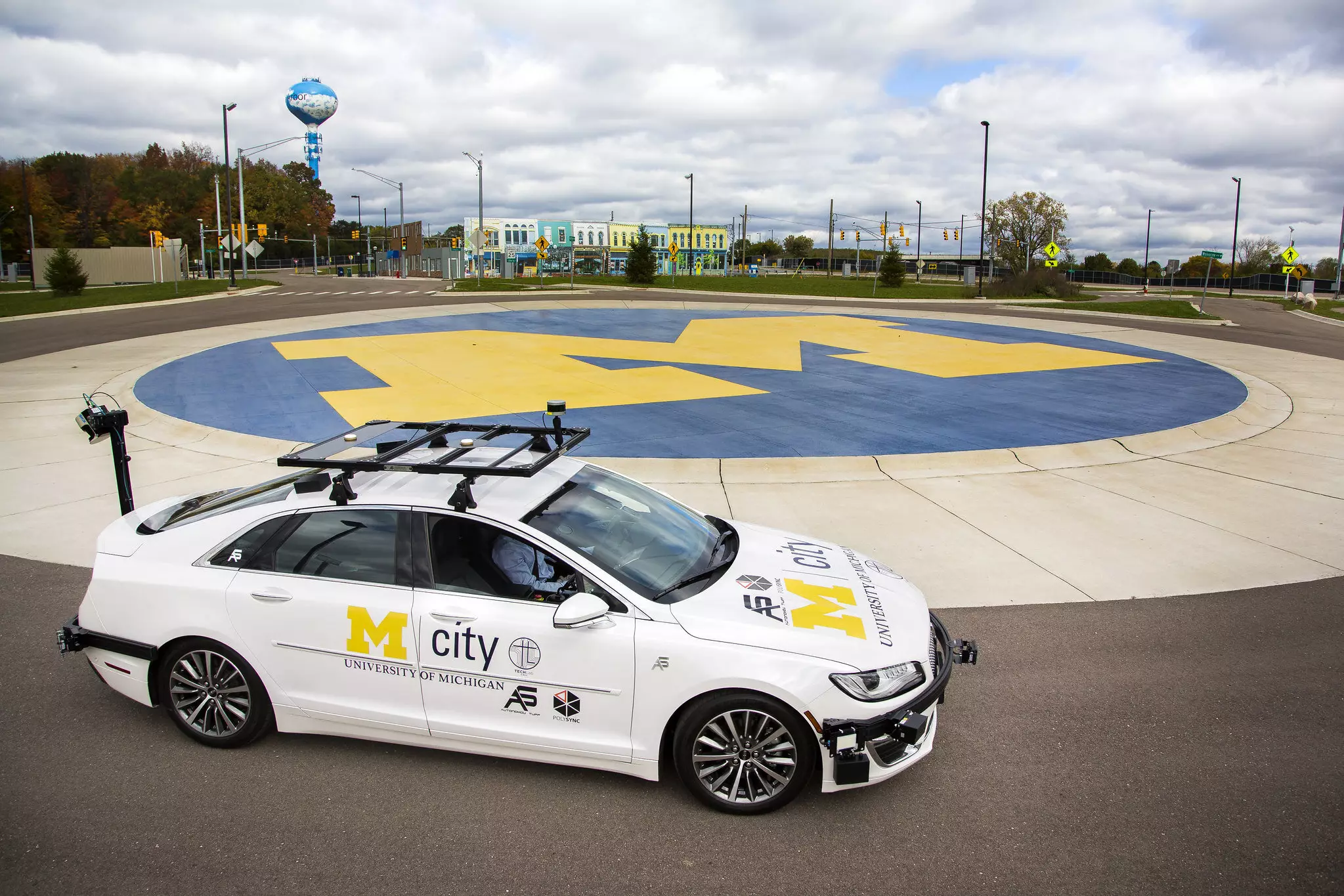The advancement of technology in the form of self-driving vehicles has brought about the development of networks that collaborate and communicate with each other or infrastructure to make decisions. However, a University of Michigan-led study has highlighted the vulnerability of these networks to data fabrication attacks. This technology, known as vehicle-to-everything or V2X, has not yet hit the roads, but countries are already supporting its development and conducting small-scale testing. The risks associated with collaborative perception in autonomous vehicles allow hackers to introduce fake objects or remove real objects from perception data, potentially leading to accidents.
The study introduced sophisticated, real-time attacks that were tested in both virtual simulations and real-world scenarios at U-M’s Mcity Test Facility. These attacks involved falsified LiDAR-based 3D sensor data that appeared realistic to the system but contained malicious modifications. By using zero-delay attack scheduling, the attackers were able to introduce malicious data without lag or delay. The effectiveness of these attacks in virtual simulated scenarios was alarming, with success rates reaching 86%. On-road attacks at the Mcity environment triggered collisions and hard brakes, highlighting the severity of the security vulnerabilities in these self-driving networks.
In response to these security vulnerabilities, the researchers developed a countermeasure system called Collaborative Anomaly Detection. This system leverages shared occupancy maps to cross-check data, allowing vehicles to quickly detect the geometric inconsistencies of abnormal data. The system achieved a high detection rate of 91.5% with a low false positive rate of 3% in virtual simulated environments. The implementation of this system significantly reduced safety hazards in the Mcity scenarios, providing a promising solution to combat data fabrication attacks in collaborative perception systems.
The findings of the study not only highlight the importance of addressing security vulnerabilities in self-driving vehicle networks but also provide a robust framework for improving connected and autonomous vehicle safety. Detecting and countering data fabrication attacks is crucial for the successful deployment of these systems in transportation, logistics, smart city initiatives, and defense. By providing comprehensive benchmark datasets and open-sourcing their methodology, the researchers aim to set a new standard for research in this domain, encouraging further development and innovation in autonomous vehicle safety and security.
The emergence of self-driving vehicle networks brings about exciting possibilities for the future of transportation. However, it is crucial to address the security risks associated with these networks to ensure the safety of passengers and other road users. The development of preventive measures such as Collaborative Anomaly Detection is a significant step forward in enhancing the security of autonomous vehicles and countering data fabrication attacks. Continued research and innovation in this domain will be essential to drive progress and ensure the successful integration of self-driving technology into our daily lives.


Leave a Reply